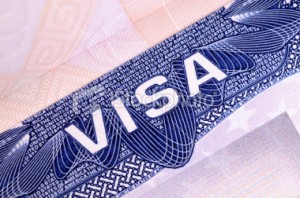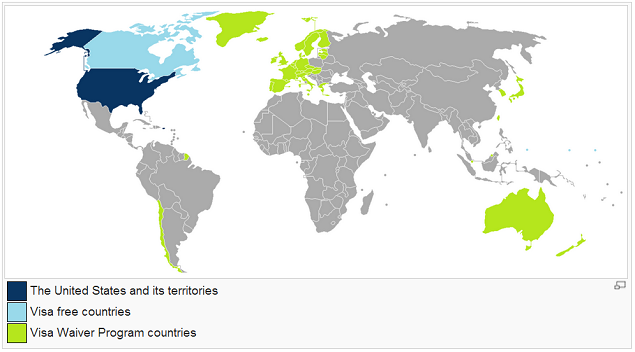Editor’s Note – The author of the following article is a Kitchen Cabinet member here at Stand Up America US. Fred served in the U.S. departments of State and Defense and traveled to Poland on official assignment when the country was ruled by communists.
When you look at which countries are already included in the visa waiver program, it is hard to understand how Poland does not already have that status.
Time To Reward Poland For Its Friendship: Let Them Join The Visa Waiver Program
By Fred Gedrich – Daily Caller
President Barack Obama’s visit to Poland tomorrow is expected to demonstrate U.S. support for this strategically important and historical ally, in the wake of Russia’s aggressive actions against neighboring Ukraine. While Poles will certainly welcome the president’s visit, they will do so with some trepidation.
Obama has upset many Poles by, among other things, unilaterally canceling a negotiated missile defense deal — an action that pleased Russia but jeopardized Poland’s security; publicly referring to Nazi death camps in Poland as “Polish death camps” (for which he later apologized) during a White House ceremony intended to honor a Polish World War II resistance hero; and shunning Poland’s heroic Nobel Laureate and former president Lech Walesa for what his White House describes as him, “being too political.”
It won’t stop Russian regional aggression, but one thing President Obama can do to win the hearts of skeptical Poles is to fully commit the U.S. to getting Poland into the U.S. Visa Waiver Program.
The program began in 1986 as a way to foster better relations with friendly countries by allowing their citizens to travel visa-free to the U.S. as tourists or on business for up to 90 days. 29 of 38 countries in this program are European, and there is a strong case for adding Poland.
National wealth, a high Human Development Index, and a low security risk are three important ingredients for gaining VWP status, and Poland scores well on each count. Since shedding communism 25 years ago, Poland has seen its economy dramatically grow to 22nd in the world at $814 billion.
The 2013 United Nations Development Report classified Poland as a “very high” HDI country with its 76 years average life expectancy, 99 percent literacy rate for males and females, and $21,000 plus average annual income. And with its strong American ties, NATO membership, and participation in the Afghanistan and Iraq military coalitions, Poland clearly isn’t a security threat. Moreover, it has implemented and adopted all VWP-related security measures and information-sharing protocols asked of them by the U.S. government.
One would be hard-pressed to find a better U.S. ally and friend than Poland and its people. As America fought for its independence, it did so with major contributions from Polish generals Thaddeus Kosciusko and Casimir Pulaski.
As the world faced the Cold War’s darkest days, it was two Poles, Pope John Paul II and Solidarity’s Lech Walesa, along with U.S. President Ronald Reagan and British Prime Minister Margaret Thatcher, who served as the principal catalysts for leading tens of millions out of their communist enslavement and into the sunshine of freedom.
Poles continued their tradition of standing beside their American friends in the 21st century by fighting and dying in Afghanistan and Iraq.
It should also not go unnoticed that three major waves of Polish immigration to the U.S. (1800s to World War I, World War II, and during the 1980 martial-law period) have filled the U.S. with a healthy and productive population of 10 million Americans of Polish descent which has contributed significantly to building and making this country great.
During Mr. Obama’s first term he made an unfulfilled pledge that Poland would enter the VWP during his presidency. The main obstacle is Poland has a visa refusal rate of 9.8 percent — exceeding the congressionally mandated 3 percent — which many believe occurs because of subjective U.S. consular officers make negative determinations during short interviews.
Congress is currently pursuing legislative remedies to remove that impediment, with strong bipartisan support in Senate and House bills S.223; S.744; H.R.490; and H.R.1354. However, those attempts may unfortunately wind-up in the ash-heap of good congressional intentions like precursor bills in previous congresses, largely because the Obama administration and many in Congress want to include VWP changes in a deadlocked comprehensive immigration bill.
Poland has unsuccessfully sought entry into the VWP since becoming a free and democratic state in 1990. The U.S. failure to grant VWP status to Poland is an embarrassment to many Americans as well as a major disappointment and irritant to 38 million Poles and a succession of its leaders. Lech Walesa described VWP entry as a “matter of honor” for Poland.
President Obama has the leadership ability and/or executive power to ensure that this matter doesn’t languish in the bureaucracy or Congress any longer. It would be a wonderful gesture on the part of President Obama during his upcoming visit to reward Poland for its extraordinary enduring friendship with America by providing Poles a specific timetable for VWP admittance. Such a move would surely please Poles and their American cousins as well as reinvigorate U.S.-Poland relations.



